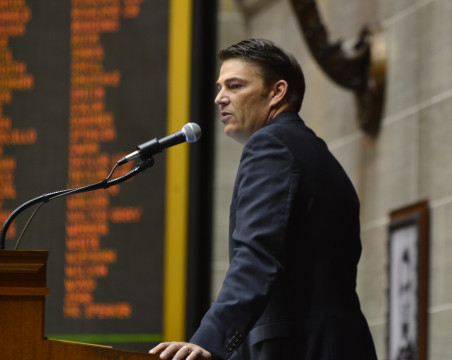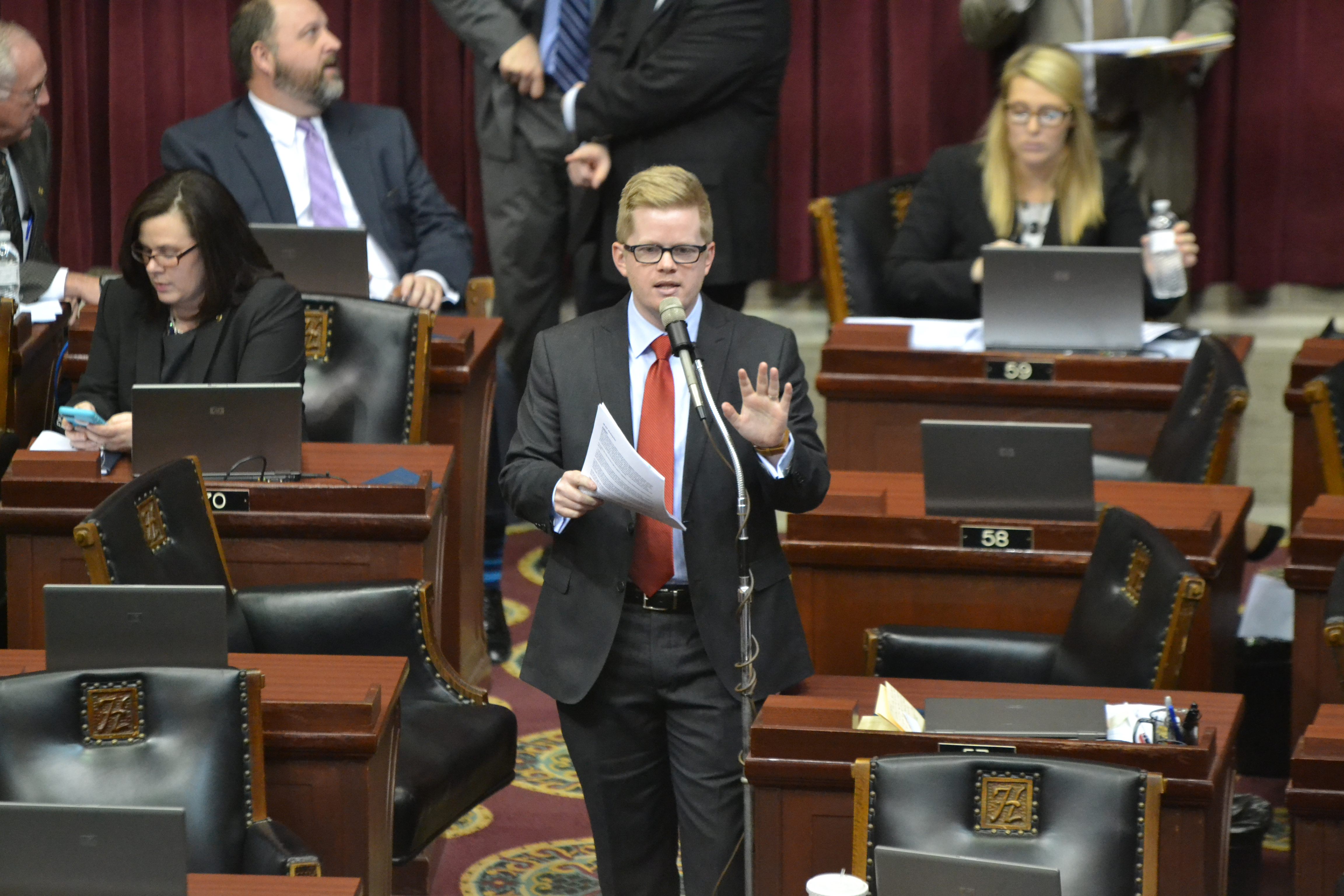 JEFFERSON CITY, Mo. – A bill which would ban legislators from becoming lobbyists a year after the end of their terms was perfected in the House of Representatives Wednesday, one of the priority pieces of ethics legislation on Speaker Todd Richardson’s to-do list.
JEFFERSON CITY, Mo. – A bill which would ban legislators from becoming lobbyists a year after the end of their terms was perfected in the House of Representatives Wednesday, one of the priority pieces of ethics legislation on Speaker Todd Richardson’s to-do list.
Rep. Caleb Rowden’s HB 1979 underwent a lot of discussion, but it passed with amendments added by Reps. Jay Barnes, R-Jefferson City, and Rowden. The original legislation would ban legislators from becoming lobbyists for a full session after adoption, but Barnes amendment and Rowden’s amendment to the amendment would extend that period to a full year after the end of that legislators term.
That amendment means that period could last as long as three years, if a legislator hypothetically resigned the day he or she was elected.
Rep. Tracy McCreery, D-St. Louis, also got language onto the bill. It transforms the legislation into a more general ethics bill, making it illegal to provide or elicit political favors using the power of office or ask lobbyists for jobs while in office, among other things.
Rowden also reiterated that the bill did not make the current members of the body exempt from the revolving door. The bill would go into effect for anyone who wins a statewide office or seat in the General Assembly for the 2016 election. The only legislators unaffected would be senior members set to become term limited.
The bill was not perfected without opposition, and the debate crossed party lines. Some, like Rep. Bryan Spencer, R-St. Charles, believe the bill goes too far.
“Why is the government getting involved in private citizens and private companies?” he said. “I urge you all to think about what we’re doing to our future, how we’re being unconstitutional for a private citizen to gain gainful employment.”
Others, like Rep. Stephen Webber, D-Columbia, do not think it goes far enough.
“This is a disappointingly small step,” he said. “Whether its five months like in the original bill, or one year, that’s too short.”
However, Barnes stressed that the chamber should pass something constitutional, and that the broad strokes proposed by Webber would not stand up to strict scrutiny. Rep. John Rizzo, D-Kansas City, responded to Spencer by stating that there was legislative precedent for dictating employment of current and former legislators. In 1993, he said, the General Assembly banned lawmakers from working at casinos for two years after working in the legislature.
Rowden concluded debate by asking the legislature to take a step with this bill, even if it was small.
“We cannot let perfect be the enemy of really, really good,” he said. “This is not a silver bullet… but this is a step in the right direction.”








